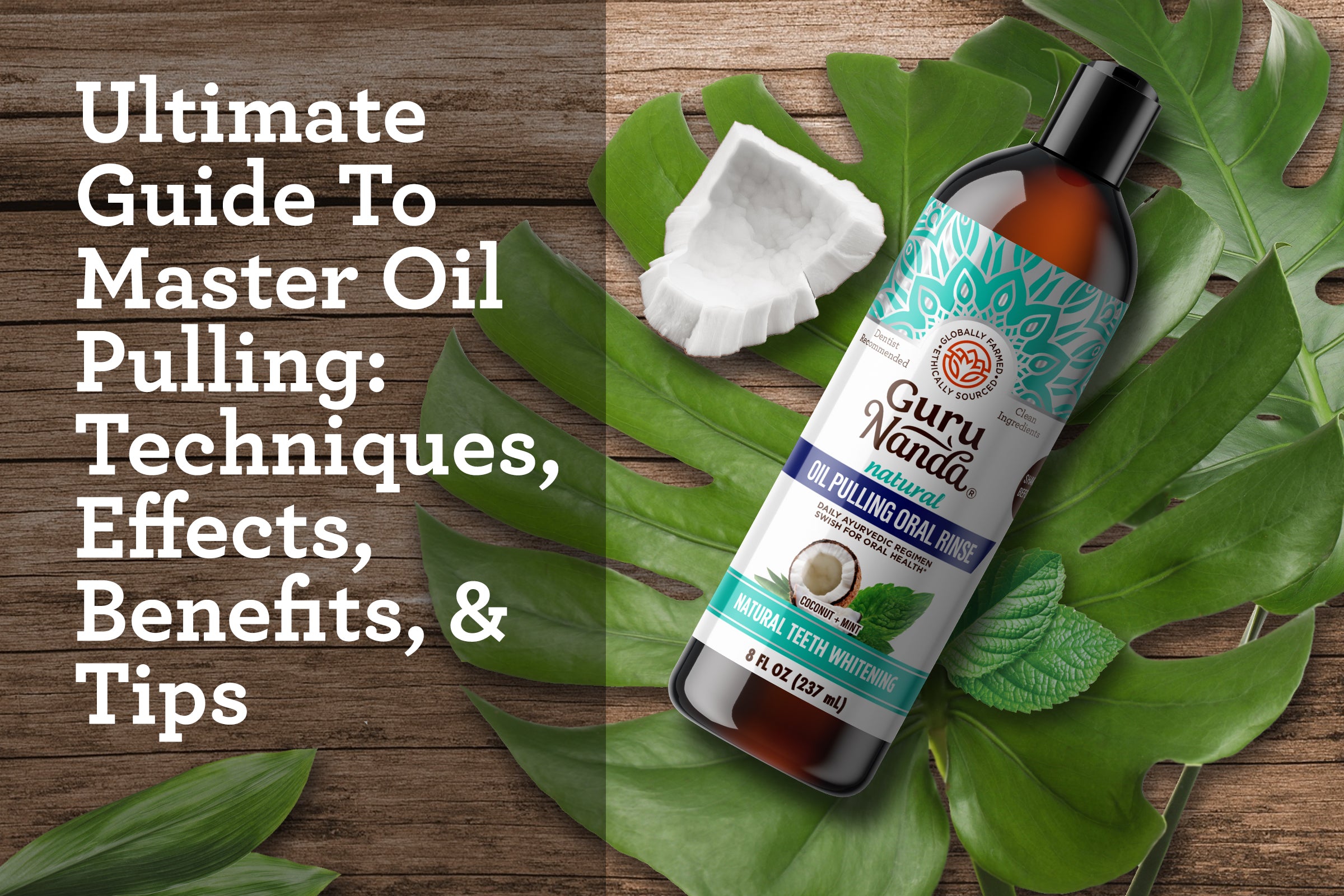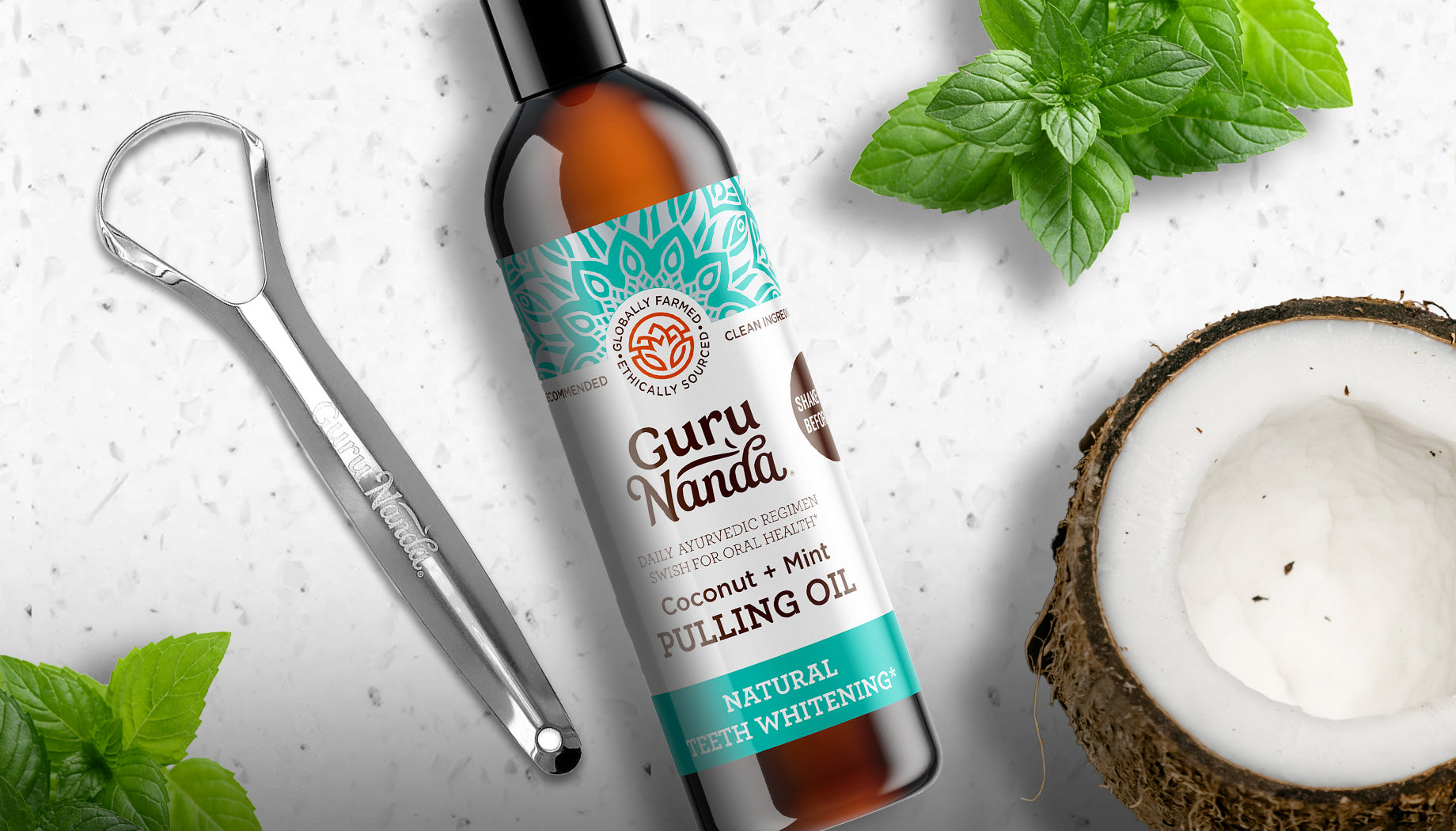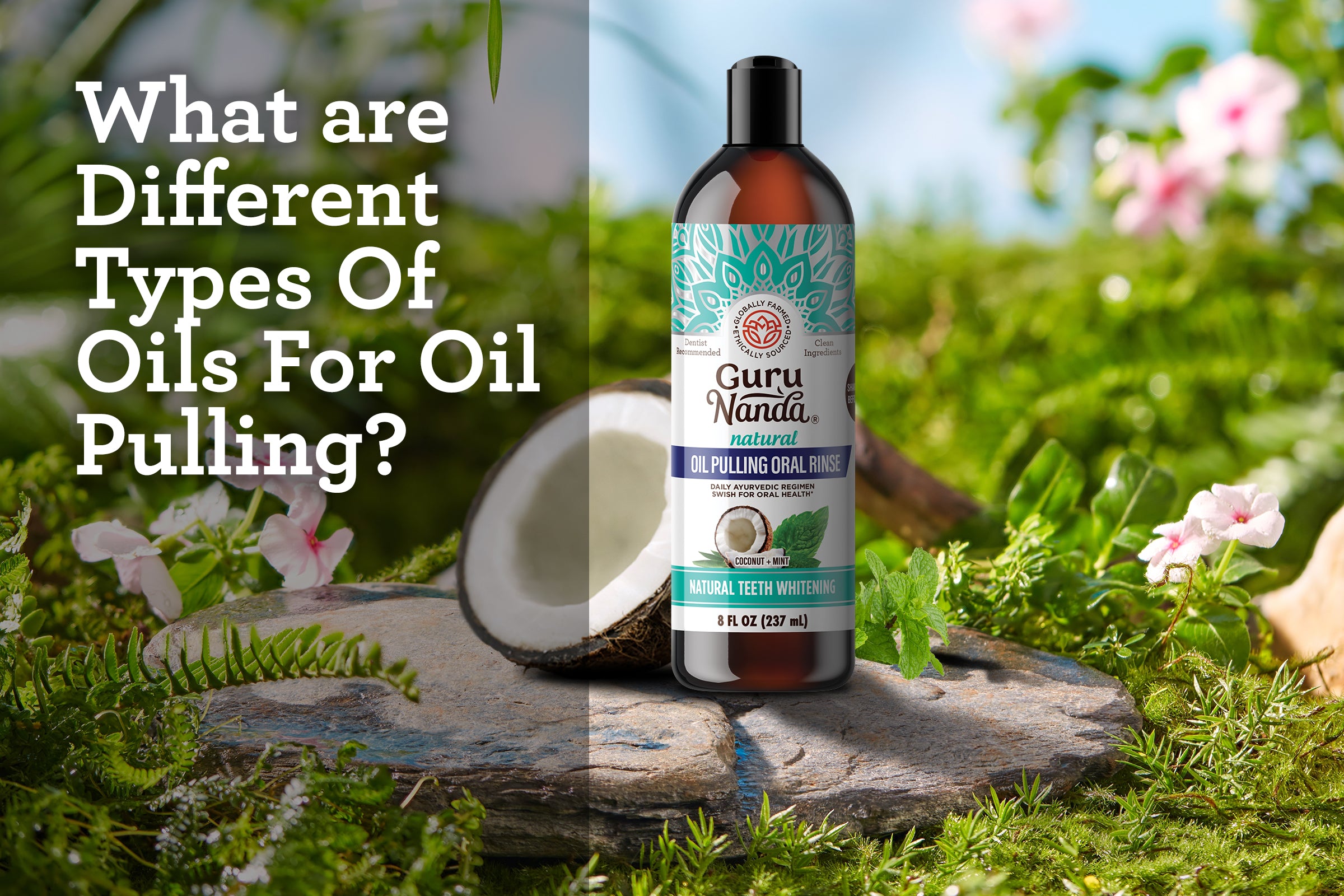Explora los beneficios del aceite de coco para los dientes en esta guía concisa. Aprende. Cómo sus propiedades antimicrobianas ayudan a combatir las bacterias, reducir la placa y prevenir las caries. Descubra la antigua Técnica de enjuague bucal con aceite y su papel en la mejora de la higiene dental. Respaldada tanto por prácticas tradicionales como por Investigación moderna, este blog ofrece información sobre el uso del aceite de coco para la salud de los dientes y las encías, cubriendo Todo, desde qué es el aceite de coco, hasta sus beneficios y cómo usarlo para aprovechar todos sus beneficios.
Qué ¿Es aceite de coco?
El aceite de coco es un tesoro de beneficios para la salud. Se deriva de... La pulpa del coco es un aceite comestible. Al ser un aceite comestible, se usa ampliamente en la cocina. El aceite de coco... También es conocido por sus beneficios para la piel y la salud, y se ha utilizado como aceite capilar durante siglos. Es predominantemente... Compuesto de grasas saturadas, de las cuales el ácido láurico constituye aproximadamente la mitad. de su contenido en ácidos grasos. Láurico ácido Junto con su forma monoglicérida , la monolaurina, es famosa por su capacidad para desmantelar bacterias y virus dañinos, lo que convierte al aceite de coco en un potente agente antimicrobiano. [ 1 ][ 2 ][ 3 ]
Históricamente, la medicina ayurvédica ha aprovechado estas propiedades para diversos fines. fines de salud, incluido el cuidado dental. La práctica del aceite tirando , El tratamiento, que consiste en hacer buches con aceite en la boca para eliminar toxinas y bacterias, ha sido un elemento básico en la medicina ayurvédica. rutinas durante siglos, lo que ilustra la creencia profundamente arraigada en la capacidad del aceite de coco para preservar y mejorar salud bucal.
El aceite de coco y los dientes
El aceite de coco es famoso por sus innumerables beneficios para la salud, incluidos sus Impacto positivo en la salud dental, gracias a su rico contenido de ácido láurico . Este ácido graso es experto en Combatir las bacterias bucales dañinas relacionadas con el mal aliento aliento , caries y enfermedades de las encías. Su poder antibacteriano se extiende a impedir la acumulación de placa en los dientes, lo que... Puede causar irritación e inflamación de las encías, posicionando el aceite de coco como un potente aliado contra la enfermedad de las encías. Además, es tan eficaz como muchos enjuagues bucales comerciales para combatir las bacterias que causan caries, como Streptococcus mutans y Lactobacillus. [ 1 ][ 4 ][ 5 ]
Más allá de Sus aplicaciones para la salud del cabello y la piel, el papel del aceite de coco en la higiene dental está profundamente arraigado en la medicina ayurvédica . Se ha utilizado para... siglos para limpiar y blanquear los dientes, refrescarlos aliento , y reforzar la salud de las encías, lo que subraya su perdurable relevancia en las prácticas de cuidado bucal. El beneficio para la salud Los atributos del aceite de coco, en particular para la salud bucal, siguen estando respaldados por investigaciones modernas, lo que ilustra su eficacia para mantener una boca sana y prevenir problemas dentales. [ 6 ]
Beneficios del enjuague bucal con aceite de coco
El aceite de coco y la salud dental se han asociado entre sí desde El aceite de coco se ha vuelto popular como una opción preferida para el enjuague bucal con aceite. El enjuague bucal con aceite de coco es una excelente opción para los dientes. Una práctica antigua revitalizada en las rutinas de salud modernas, celebrada por sus beneficios dentales. Este método de uso El aceite de coco para la salud dental implica hacer buches con aceite de coco en la boca, aprovechando las propiedades naturales del aceite. Para mejorar significativamente la salud bucal. Aquí presentamos un resumen de los beneficios comprobados del uso del coco. aceite en los dientes:
Él Puede prevenir bacterias dañinas
Se ha descubierto que el aceite de coco combate las bacterias bucales dañinas que pueden provocar Según varias fuentes , el mal aliento, las caries y las enfermedades de las encías son comunes. Es especialmente eficaz para eliminar el Streptococcus mutans (S. mutans), principal causante de las enfermedades dentales. decadencia. [ 7 ]
En un Estudio con 50 niños de 8 a 12 años, que se enjuagaron la boca con aceite de coco diariamente durante 2 o 3 días. Los minutos durante un mes también condujeron a una disminución notable en los niveles de S. mutans, igualando la eficacia de la clorhexidina, lo que indica que el aceite de coco podría ser igualmente eficaz. [ 8 ]
Otro estudio que involucró a 60 participantes demostró que el aceite Hacerse enjuagues con aceite de coco (10 mililitros al día) durante dos semanas redujo significativamente los niveles de S. mutans, mostrando resultados comparables a los obtenidos con clorhexidina, un componente antibacteriano ampliamente utilizado en enjuagues bucales. [ 7 ]
Sin embargo, una revisión de 2020 exige un análisis más completo y bien fundamentado. ensayos controlados aleatorios para determinar completamente la eficacia del oil pulling para eliminar las bacterias bucales. [ 6 ]
Él Puede prevenir el mal aliento (halitosis)
La halitosis , comúnmente conocida como mal aliento, es un problema generalizado. que afecta la salud bucal. El aceite de coco tiene propiedades antimicrobianas. Cualidades que pueden atacar y eliminar las bacterias responsables de los malos olores. [ 9 ][ 10 ]
A Un estudio piloto aleatorizado encontró una mejora notable en la frescura del aliento y en el aliento autoinformado. calidad después de hacer oil pulling con aceite de sésamo. Dado que el aceite de coco comparte una saponificación y... Si bien el aceite de sésamo tiene propiedades antimicrobianas, es posible que el oil pulling con aceite de coco pueda producir resultados comparables. beneficios. [ 11 ]
Productos como Cocomint de GuruNanda Pulling Oil , que combina los beneficios del aceite de coco con el sabor refrescante del menta, han sido clínicamente probado Para aliviar la halitosis hasta por 12 horas cuando se usa durante al menos 2 minutos, ofreciendo una solución práctica y natural. Solución para mantener el aliento fresco.
Él Puede prevenir las caries
Las caries se originan a partir de la caries dental , que es causada principalmente Por acumulación bacteriana, cuidado dental inadecuado y consumo de alimentos azucarados. La placa, una biopelícula. Compuesto por bacterias, saliva y restos de comida, se adhiere a los dientes, lo que puede provocar la erosión del esmalte. y formación de cavidades. [ 12 ]
Una investigación de 2016 indica que el oil pulling podría disminuir los niveles de bacterias responsables de las caries en la cavidad bucal. Al combinarse con el cepillado regular, el raspado lingual, Además del uso de hilo dental y el enjuague bucal con aceite, estos pueden servir como una medida adicional y necesaria para promover la salud dental. [ 8 ]
Él Puede mejorar la salud de las encías y reducir la placa.
Goma La enfermedad de las encías, o gingivitis , se caracteriza por Inflamación, causada principalmente por la acumulación de placa dental de bacterias dañinas en la boca, a menudo relacionada con prácticas de higiene bucal deficientes. [ 13 ]
A Estudio preliminar en el que participaron 60 participantes que se sometieron a enjuagues bucales con aceite de coco durante un El mes pasado se observó una reducción significativa en la acumulación de placa y los síntomas de gingivitis entre aquellos con Enfermedad periodontal inducida por placa. Al concluir el estudio, los niveles de placa se habían reducido en un 68 % y la gingivitis... en un 56%, aunque el estudio no incluyó un grupo de control para la comparación. [ 14 ]
Además, un estudio de una semana de duración comparó la ingesta diaria de calorías. Las sesiones de extracción de aceite de 10 minutos con aceite de coco en un grupo de control que utilizó un enjuague con agua mineral encontraron resultados similares. Resultados de reducción de placa en ambos grupos. Esto sugiere que el enjuague bucal regular podría tener un impacto significativo. efecto en la reducción de la acumulación de placa. [ 15 ]
Otro estudio temprano encontró disminuciones notables en el índice de placa y sangrado. (indicativo de la salud de las encías) después de que los participantes practicaron el oil pulling con aceite de coco durante 20 minutos al día durante un mes. [ 16 ]
Mientras Estos hallazgos son alentadores, pero se necesitan ensayos controlados aleatorios más amplios para confirmarlo. estos resultados.
Dientes Blanqueo
Mientras La evidencia científica directa es limitada, pero los informes anecdóticos sugieren que el enjuague con aceite de coco puede ayudar a blanquear los dientes. Eliminando las manchas superficiales. En concreto, los productos de enjuague con aceite de GuruNanda , que incluyen siete Diferentes aceites esenciales naturales junto con las vitaminas D3, E y K2 han demostrado efectos clínicos. beneficios . Dichos productos han sido clínicamente probados. mostrado a Aclarar los dientes al menos dos tonos por encima de una línea base en un plazo de seis semanas, siempre que se utilicen a diario durante al menos seis semanas. al menos dos minutos. En cambio, el oil pulling tradicional con aceite de coco normal suele requerir de 10 a 20 minutos. Minutos por sesión para lograr resultados óptimos. La adición de aceites esenciales y vitaminas al enjuague de GuruNanda... podría ofrecer resultados visibles más rápidos incluso con duraciones más cortas de extracción de aceite.
Cómo ¿Utilizar aceite de coco para los dientes?
- Elegir el aceite: Opte por aceite de coco de alta calidad por sus beneficios naturales.
- El Rutina: Comenzar con una cucharadita de aceite de coco, haciendo buches suaves. Aumente gradualmente la cantidad de aceite y la duración del enjuague a medida que se sienta más cómodo, llegando a un máximo de 15 a 20 minutos.
- La constancia es clave: la práctica diaria, idealmente por la mañana antes del desayuno, maximiza el beneficios para la salud.
- Cuidados posteriores al enjuague con aceite: Deseche el aceite en la basura (para evitar obstruir los desagües) y haga un seguimiento. con prácticas regulares de higiene bucal, que incluyen cepillado, raspado de la lengua, uso de hilo dental y enjuague.
Conclusión
En En conclusión, integrar el aceite de coco para los dientes en su régimen diario de higiene bucal va más allá del cuidado tradicional, Ofrece beneficios únicos respaldados tanto por la sabiduría ancestral como por la investigación contemporánea. Este método natural puede... reducir significativamente las bacterias bucales, en particular las que causan caries y enfermedades de las encías, que a su vez pueden Provoca un aliento más fresco, menos caries y encías más sanas. La aplicación regular y correcta de aceite de coco... Tirar de la pasta de dientes también puede ayudar a reducir la acumulación de placa e incluso podría contribuir a blanquear los dientes al eliminarla. Manchas superficiales. Cuando se practica de forma constante, junto con el cuidado dental estándar, el enjuague con aceite de coco no solo... Promete un entorno bucal más saludable pero también refleja un compromiso con un enfoque más natural y preventivo. Salud dental. Por lo tanto, incluya el enjuague con aceite de coco para la salud de dientes y encías en su rutina de cuidado bucal y desbloquee Un sinfín de beneficios para el bienestar de tu boca.
Preguntas frecuentes
P: ¿Para qué sirve el aceite de coco para la salud de los dientes y las encías?
A: Hacer buches con aceite de coco es una práctica tradicional de higiene bucal que consiste en hacer buches con una cucharada de aceite de coco en La boca durante 5 a 20 minutos. Este método tiene como objetivo reducir las bacterias bucales dañinas, desintoxicar la boca y mejorar la salud dental en general al extraer toxinas de los dientes y encías hacia el aceite, que luego se expulsa.
A: P: ¿Puede el aceite de coco revertir la caries dental?
A: La caries dental es irreversible una vez que se produce, y el aceite de coco por sí solo no puede revertir este daño. Sin embargo, Las propiedades antimicrobianas del aceite de coco pueden ayudar a reducir bacterias como Streptococcus mutans , que se sabe que contribuyen a la descomposición. Incorporando La incorporación regular de enjuagues bucales con aceite a una rutina integral de higiene bucal que consiste en raspar la lengua, cepillarse los dientes, El uso de hilo dental y enjuague bucal puede ayudar a mantener un ambiente bucal más limpio y potencialmente prevenir la aparición de nuevas cavidades. [ 7 ]
P: ¿Cómo? ¿El aceite de coco afecta la salud de las encías?
A: El aceite de coco afecta positivamente la salud de las encías al reducir potencialmente la inflamación y minimizar la presencia de bacterias dañinas que contribuyen a enfermedades de las encías como la gingivitis y la periodontitis. Sus propiedades antiinflamatorias calman las encías, mientras que su acción antimicrobiana ayuda a mantener una salud bucal equilibrada. microbioma, promoviendo encías más sanas. [ 5 ]
P: ¿Puede? ¿Usas aceite de coco para cepillarte los dientes?
A: Sí, es seguro cepillarse los dientes con aceite de coco. Mucha gente añade aceite de coco a su pasta dental o lo usa. directamente en su cepillo de dientes.
P: ¿Puede? ¿El aceite de coco blanquea mis dientes?
A: Clínico investigación sugiere que el uso regular del aceite de GuruNanda Los productos que incorporan aceite de coco pueden blanquear los dientes al menos dos tonos. Este efecto se consigue con un uso constante durante seis semanas, con una duración de al menos 2 minutos por sesión. día. Además, existe evidencia anecdótica de que el oil pulling con estos productos puede ayudar a reducir la superficie manchas en los dientes, dando lugar a una apariencia más blanca.
P: ¿El enjuague con aceite de coco tiene algún efecto sobre el dolor o la sensibilidad dental?
A: El enjuague bucal con aceite de coco puede tener un efecto calmante sobre el dolor y la sensibilidad dental en algunas personas. Las propiedades antibacterianas pueden ayudar a abordar las infecciones o inflamaciones subyacentes que causan el malestar. Además, el aceite forma una barrera protectora sobre los dientes, lo que podría reducir temporalmente la sensibilidad a estímulos calientes o fríos. Sin embargo, es crucial consultar a un dentista si el dolor o la sensibilidad persisten, ya que estos Podrían ser signos de problemas dentales más graves.
P: ¿Es? ¿Es seguro tragar aceite de coco?
A: Si bien el aceite de coco es comestible, no debes tragar el aceite que hayas usado para tu rutina de oil pulling.
P: ¿Puede? ¿El aceite de coco hace crecer los dientes?
A: No, El aceite de coco no puede regenerar los dientes. Una vez que se pierden los dientes permanentes, no pueden regenerarse.
P: ¿Cómo? ¿Cuándo puedo comenzar a hacer oil pulling después de una extracción dental?
A: Espere al menos 1 o 2 semanas después de la extracción dental para permitir la curación inicial antes de comenzar a usar el enjuague con aceite. Siempre Consulte primero con su dentista.
P: ¿El aceite de coco elimina la placa?
A: Sí, el aceite de coco tiene propiedades antimicrobianas que pueden ayudar a reducir la formación de placa al atacar las bacterias. Responsable de la acumulación de placa.
[1] - https://pubmed.ncbi.nlm.nih.gov/33022082/
[2] - https://www.ncbi.nlm.nih.gov/pmc/articles/PMC6923562/
[3] - https://pubmed.ncbi.nlm.nih.gov/19469285/
[4] - https://www.ncbi.nlm.nih.gov/pmc/articles/PMC5109859/
[5] - https://www.ncbi.nlm.nih.gov/pmc/articles/PMC4382606/
[6] - https://www.ncbi.nlm.nih.gov/pmc/articles/PMC7475120/
[7] - https://pubmed.ncbi.nlm.nih.gov/27084861/
[8] - https://pubmed.ncbi.nlm.nih.gov/27891311/
[9] - https://www.ncbi.nlm.nih.gov/books/NBK534859/
[10] - https://www.ncbi.nlm.nih.gov/pmc/articles/PMC5654187/
[11] - https://pubmed.ncbi.nlm.nih.gov/21911944/
[12] - https://www.ncbi.nlm.nih.gov/books/NBK279514/
[13] - https://www.ncbi.nlm.nih.gov/books/NBK557422/
[14] - https://pubmed.ncbi.nlm.nih.gov/25838632/
[15] - https://www.ncbi.nlm.nih.gov/pmc/articles/PMC5713846/
[16] - https://www.ncbi.nlm.nih.gov/pmc/articles/PMC7535963/





